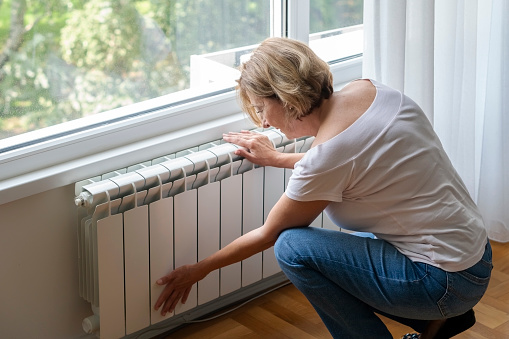Do Oil Filled Heaters Dry Air In The Room? Find Out Here!
Do you want to buy a new heating system for your home but aren't sure which one to choose? Understanding 'do oil filled heaters dry Air' will give you an idea of whether or not you should buy an oil radiator. Oil-filled radiator use is incredibly popular. Space heat pumps are popular for heating homes because they're safe, efficient, and effective.

Oil filled heaters have many concerns attached. Such as they can freeze or may be dry air. In this post, we will find do oil filled heaters dry the air. This way you can make an informed decision about whether to buy an oil-filled radiator or not.
Do Oil Filled Heaters Dry Air?
We’ll go through what happens when your oil-filled radiator heats up the air inside your house.
Of course, the temperature rises. However, the most important thing to remember is that warm (or hot) weather holds more water vapour than cold (or cool) weather. As the temperature rises, so too does its ability to hold water.
Next, the most essential thing is that an oven filled with cooking oils doesn't increase the humidity level in the room; rather, it reduces the humidity level in the atmosphere.
Heat sources that generate moisture include candles, lamps, and gas heaters are probably the most common example. Oil-filled heaters don't.
How To Add Moisture To The Air?
The next question is: how much moisture is added to the air by other heat sources?
When you turn on a light bulb, a lamp, or even a space heater, you know exactly how much moisture is being added to the air. You also know how long it takes for the room to reach equilibrium with the outside environment.
This is why it's easy to tell if a room has been heated by a space heater or a candle. A candle will take longer to heat the room than a space heater.
If you have a humidifier running in the same room as a heater, you'll notice that the room isn't as humid as before.
What Are The Distinct Benefits Of Oil-Filled Radiator Heating?
Oil-filled radiators have numerous benefits over other types of heating systems.
Some of them are stated below.
Safe
Oil-filled radiators don't emit harmful gases like some other types of heating systems do.
Efficient
Oil-filled radiations are very energy efficient. In fact, they're the most energy-efficient type of heating system available today.
Reliable
Oil-filled radiator heating systems are reliable and durable.
Affordable
Oil-filled radiator heating systems are affordable. You won't need to spend thousands on a heating system if you opt for oil-filled radiators.
How Do Oil-Filled Radiators Work?
An oil-filled efficient radiator works by circulating heated oil around a metal coil. When the coil gets hot, it transfers heat to the surrounding air.
The oil in the radiator absorbs the heat and then releases it into the air. It's a closed-loop system.
This means that the oil never comes into contact with any outside elements. It stays clean and free of dirt and grime.
How Much Do Oil Heaters Cost?
You might be wondering how much oil heaters cost. Well, here's a quick breakdown:
A standard oil-filled radiator costs between 1,000 - 2,500 pounds
Space heat pump prices vary depending on the size of your home. They range anywhere from 3,000 - 7,000 pounds.
If you decide to install a space heat pump, you'll pay an additional installation fee.
If you'd rather stick with an oil-filled radiator, you can expect to pay between 800 - 1,200 pounds.
What Are The Disadvantages Of A Oil Heater?
There are many disadvantages associated with using oil-filled radiators as well.
- They are expensive.
- They require regular maintenance.
- They can make extra noise.
- They're heavy.
- They're bulky.
- They're difficult to install.
- They take time to heat up.
- They're inefficient.
- They're dangerous.
- They're messy.
- They're hard to clean.
Safety Risks Associated With Oil Heaters
Oil-filled radiator heating systems pose several safety risks.
First, there's the risk of fire. If the oil heats up too quickly, it could ignite. This is especially true when the temperature inside the house reaches 100 degrees Fahrenheit (38 degrees Celsius).
Second, there's the risk that the oil may leak out of the tank.
Third, there's the risk involved in installing the oil-filled radiator heating system.
Fourth, there's the risk posed by the presence of flammable materials near the heating system.
Fifth, there's the risk associated with the use of toxic chemicals.
Sixth, there's the danger of carbon monoxide poisoning. Carbon monoxide is a colourless gas that's produced during combustion.
Contents
- 1 Do Oil Filled Heaters Dry Air In The Room? Find Out Here!

